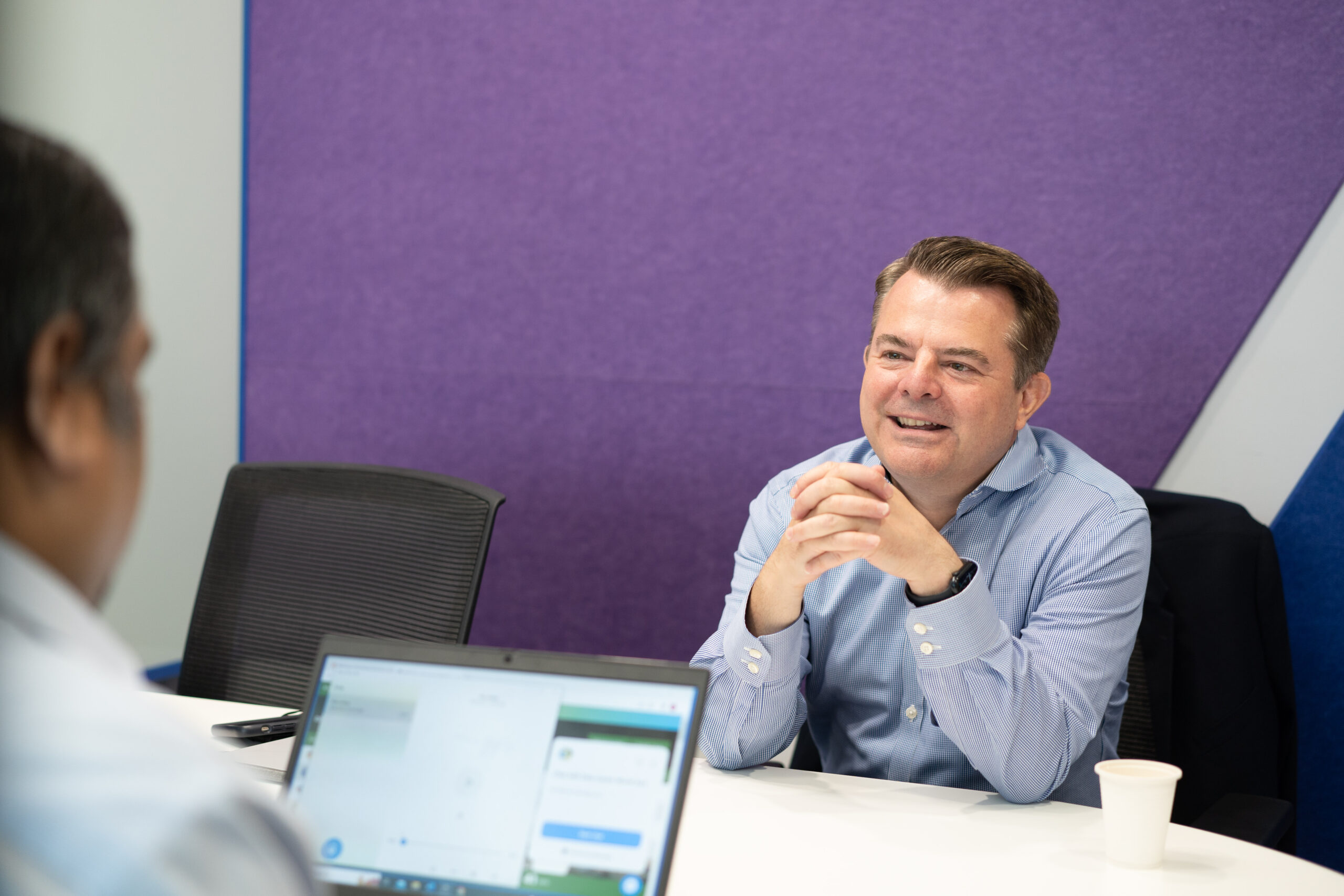
(Photo by SPENCER PLATT / GETTY IMAGES NORTH AMERICA / Getty Images via AFP)
IPC has big plans for financial markets in the region
With cloud adoption in the financial services industry (FSI) increasing, securing the workloads and data as well as the network is a prerogative for organizations. Be it banks or financial markets, choosing the right cloud strategy and security framework needs to be a decision that can support the changes the industry goes through in the years to come.
As data continues to grow exponentially and demand for better services increases, how FSIs make the most of the network when using cloud services, be it for communication or running new workloads would require solutions that are not only precise but also adhere to the regulations set in each country.
For IPC, this is exactly what they ensure their clients today. David Brown, IPC’s Chief Commercial Officer discusses how IPC is handling risks and cybersecurity with increased cloud adoption. He also addresses the ongoing skills shortage that the industry is facing and IPC’s plans for the region.
How does IPC deal with the growing cybersecurity issues, especially with the industry using more technologies?
We take risk and security very seriously. We design our products or services to be as risk-averse as possible because we work with high-profile industries. For example, we built our own private cloud capability to deliver our cloud-based products to show they’re inherently more secure than they will be in a public environment.
With more banks and other financial services looking at the multi-cloud, how is IPC catering to this and dealing with the complexities?

David Brown, IPC’s Chief Commercial Officer
Our ability to transit from our private environment to a multi-cloud environment into providing that gateway that is secure for our customers is a key critical advantage for us. We can take our customers from within our environment and into that multi-cloud environment, into all the primary data center facilities that they need to access globally.
There is definitely complexity as it deals with a lot of different requirements. We’ve been in the networking business for more than 40 years at this point, we’ve evolved the business from being primarily focused on voice to being very data-oriented. We’ve had to move with the market as to where the market is going.
Multi-cloud is a key or core trend associated with the industry. Our ability to transit into that for our customer access is absolutely critical to our value proposition.
Skills shortage is another big problem affecting the industry. How is IPC dealing with this?
It’s the biggest dislocation everyone is dealing with anywhere in the world right now. We’re very fortunate to see that we’ve got great employees in this company. We’ve built out additional capabilities in Malaysia and we’ve been able to both develop and train in-house as well as add additional talent.
IPC is a place where people want to come and work because it has a great reputation. It has very exciting things in the global financial markets. We’ve managed to not just attract talent, but also develop and retain talent as well. This helped fill the gaps of our customers who have their own challenges.

With 2023 on the horizon, what technologies do you think will be dominating the industry?
I think the technology that we thought was going to dominate but then got rather limited because of the pandemic was around artificial intelligence (AI), especially with natural language processing (NLP).
We have spent a lot of time in our communications business with this because we own the output of all the activities. It’s now about how to leverage those outputs to drive efficiency, compliance, and more productivity. I think that’s going to be the major area of focus.
So, compliance and regulatory alignment of productivity and getting a competitive edge, I think that’s probably going to be the biggest level of investment and time spent in a couple of years.
I don’t think AI is ever going to replace human interaction as we have seen through the pandemic. There’s much more reliance on human interaction around voice training ever gonna replace human interaction. I think we saw particularly through the pandemic, here’s great volatility. There’s much more reliance on human interaction around voice training, the kind of human-to-human activity.
I do see the AI capability to drive more efficiency in terms of workflow. We see all the time where people leverage bots for different workflows, different processing, and so on. AI is going to drive more efficiency but not displace the workforce.
Lastly, what plans does IPC have for the region, especially with the speed of development and tech adoption here?
We’re very excited about the decision we made a number of years ago about building a much greater presence within Malaysia. Apart from Malaysia, we have offices across Japan, Hong Kong, and Mainland China. We have regional distributors in Australia and Singapore as well.
With the continued proliferation of our reach and of our partnerships in the region, we can move into more of the frontier markets now as well. For example, places like Vietnam, offer the kind of new opportunities that we haven’t considered in the past.
In Vietnam, we’ve already seen a great maturation of financial markets there. For example, the Ho Chi Minh City Stock Exchange is now the key venue for us as part of our global data network infrastructure.
We are connected to more than 80 exchanges globally with Ho Chi Minh our latest addition. So if you see the maturing of financial markets and maturing level of activity within those financial markets, it becomes a key destination that people want to connect to.
READ MORE
- Strategies for Democratizing GenAI
- The criticality of endpoint management in cybersecurity and operations
- Ethical AI: The renewed importance of safeguarding data and customer privacy in Generative AI applications
- How Japan balances AI-driven opportunities with cybersecurity needs
- Deploying SASE: Benchmarking your approach


